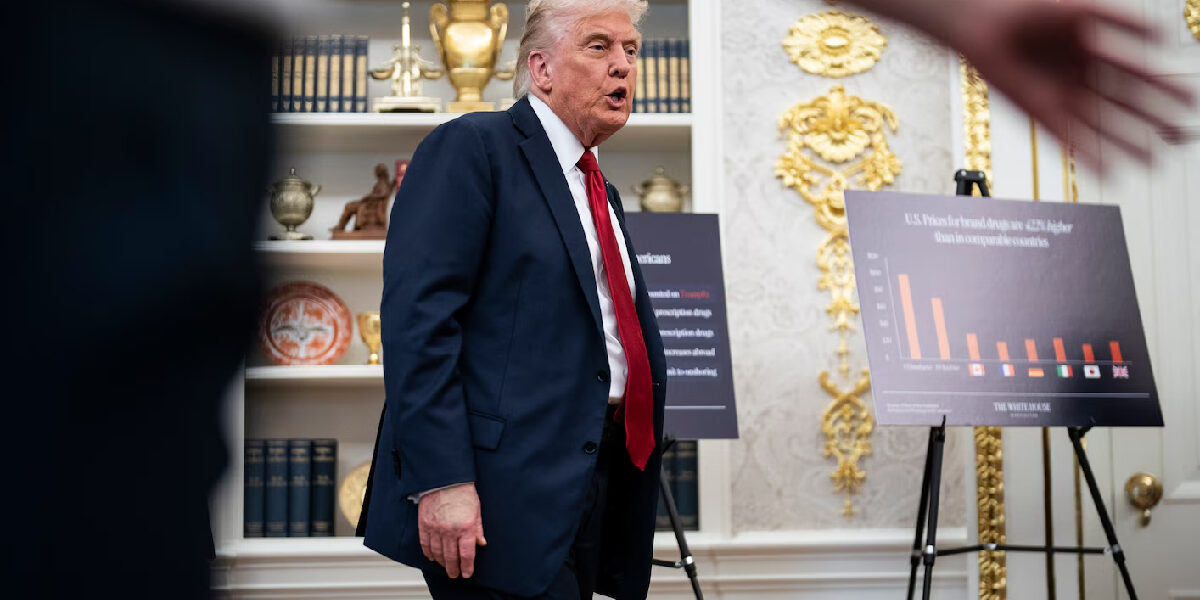President Donald Trump declared victory this week in his long-standing push to lower drug prices, striking a deal with pharmaceutical giant Pfizer. But while the White House celebrated the move as a breakthrough for American patients, the agreement also delivered big benefits to Pfizer and the broader drug industry.
Under the deal, Pfizer will sell a few of its drugs in the U.S. at prices closer to what patients in Europe pay, avoiding looming import tariffs in the process. Trump hailed it as proof that he forced Big Pharma to finally “play fair.” Pfizer, however, emerged largely unscathed—its stock surged 14% after the announcement, and analysts say the revenue hit will barely dent the company’s bottom line.
The discounted drugs announced so far are not Pfizer’s top sellers and account for less than 5% of its U.S. revenue, much of it tied to Medicaid. Analysts estimate the cost to Pfizer at about $723 million a year—just over 1% of its annual revenue of $63.6 billion. Meanwhile, the company gained a model deal that other drugmakers are expected to replicate, limiting the financial risk for the entire industry.
Pfizer also secured a three-year reprieve from import levies and pledged to boost investment in U.S. manufacturing plants, another win for the company’s image. A White House official framed Pfizer’s rising stock price as proof that global markets will “rebalance” and force other nations to shoulder more of the burden.
Trump, standing alongside Pfizer CEO Albert Bourla at the White House, promised Americans that “your medicine costs are coming way down.” Bourla echoed the sentiment, calling patients the “big winners” of the deal. Yet, the real impact on household drug costs remains uncertain.
The push comes as Medicare negotiates prices for some of its most expensive drugs, including blockbuster diabetes and obesity treatments like Ozempic and Wegovy. While recent negotiations have trimmed costs, U.S. patients still pay roughly double what Europeans pay for the same medications.
Critics argue the industry remains one of the most profitable in the country, even more so than the average S&P 500 company. “You can cut these drug prices without harming these companies,” said Fred Ledley, a professor at Bentley University who reviewed financial filings from major drugmakers.
But the pharmaceutical lobby remains one of the most powerful forces in Washington. Industry groups warn that lower prices could slow innovation and allow foreign competitors, especially China, to catch up. They also argue that foreign countries should raise their prices instead of the U.S. lowering its own.
For now, Trump has secured a symbolic win on an issue that resonates with voters. But in practice, Pfizer and Big Pharma may have walked away with the bigger prize.
